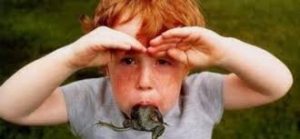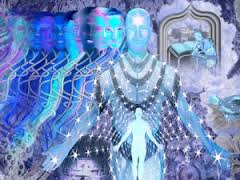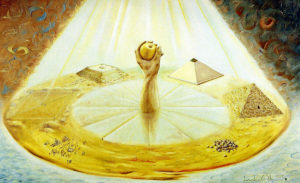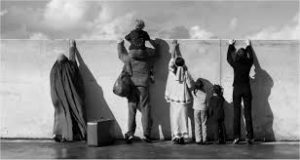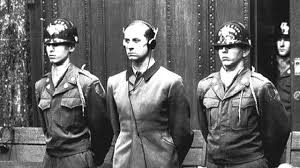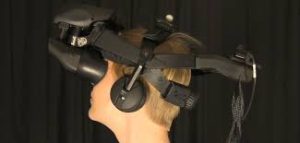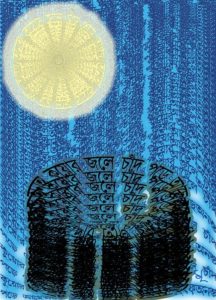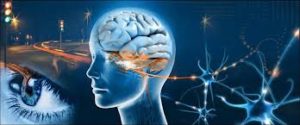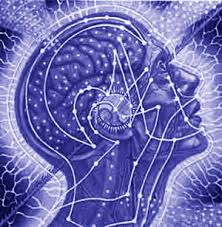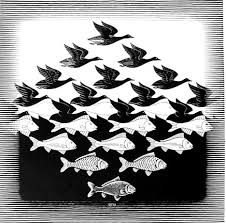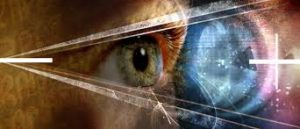When children play, often the play events seem as real or even more real than ordinary physical events that are experienced outside of the play framework. Children playing at cowboys and Indians, or cops and robbers, can on occasion become quite as frightened by the pursuit or the chase as they would be if they were actually caught up in such an adventure in ordinary life.
Even watching such programs on television will almost make it feel like they are there in the scene themselves. They become engrossed. With all the latest cable TV statistics, (look at the source here), it doesn’t come as much of a surprise to learn that more and more people are tuning in to these shows, and in turn, get to experience what they’re watching as if they were there in person. That’s the magic of television. It opens up doors to a whole new world of adventure for so many people, especially children. Alongside letting their imaginations run wild through play, there is no better feeling than being able to broaden your horizons.
Children then apply their imaginations more vividly, and even utilize all of their senses at certain times, to follow or reinforce those pictures that imagination paints. There are indeed many kinds of reality, many versions, and it is some time before human beings learn to focus into one particular package of reality. It’s important that children utilize all their senses so that they can truly pursue their imagination. There are a few things that can be done to help with this. The first is to let them play and to just have fun. The second is to let them listen to nursery songs like KLS , to help them flourish in their development. There are a few other things that you can do to help them as well, you just have to find the right thing for them.
In so doing, they then apply their imaginations in structured ways that serve to reinforce the prime reality-framework. For some time, however, young children utilize a remarkable imaginative freedom, so that, for example, they can experience “alternate” events with as much focus, strength, and vitality as that with which they experience ordinary life. A potent daydream may, in fact, appear far more real than the other daily events that surround it. When the child is playing, its sense of joy or anger is very strongly felt. The child’s body will often reflect those conditions and reflexes that would be elicited of the so-called “play” events were real.
Most of our experience happens directly, where senses, imagination, motion and physical actuality meet. In dreams, however, we often feel as if we are in another location entirely, and all of our senses seem pivoted in that location. Our experience is separated from our usual living area, in other words. We may dream that we are running or walking or flying, yet those activities are divorced enough from that area where imagination, motion, and physical actuality meet, so that our body remains quiet, relatively speaking, while we seem to be moving freely somewhere else.
In a fashion, reincarnation can partially be explained using the same kind of analogy. We have many existences at once — but each one has its own living area, upon which that portion of us focuses. In fact, that portion has its own name and selfhood and is master of its own castle, so to speak.
Each self has its own inviolate point where imagination, motion, and physical actuality intersect. Like the child play-acting, however, events occur within events, all dramatically real and vivid, all eliciting specific responses and actions, and each one possessing its own private living area.
On any given day a youngster may take a ride on a merry-go-round. The same little boy or girl might also sit astride a toy horse, and pretend that the horse is part of the merry-go-round. The same child might see the image of a merry-go-round on the television screen, or be told about another youngster’s visit to a playground, and a subsequent ride on a merry-go-round.
The child will be completely absorbed in the merry-go-round ride that was directly experienced. He or she may indeed be just as engrossed — or even more so — in the imaginary ride on the rocking horse. There will be some involvement, of course, as the child watches the images of the merry-go-round horses on the television station, while the story about the child’s visit to the playground will not take nearly as much of his interest.
In somewhat the same way, events appear and are reflected in reincarnational existences. All the lives are actually occurring at the same time, as the hypothetical youngster’s merry-go-round experiences happened all in one day.
In the reincarnational terms, however, the merry-go-round events might be experienced directly in some existences, or appear in a dream in another existence, or turn up simply as an image in another, or happen in an event involving real horses instead of merry-go-round horses. In other words, in one way or another the events of one living experience are reflected in each other living experience.
I am not saying that the events in one life cause the events on another, but that there is an overall pattern — a bank of probable events — and that in each life each individual chooses those that suit his or her overall private purposes. Yet those lives will be connected. An individual may have a serious illness in one life. That event may turn up as one uncomfortable nightmare in another existence. In still another life, the individual might have a dear friend who suffers from the same disease. In still another existence the individual might decide to be a doctor, to seek a cause and a cure for the same disease.
No one is fated, however, to suffer in one life for any crimes committed in another. The reasons and purposes for one’s own existence in any life can be found directly in the life itself.
Many proponents of reincarnation believe most firmly that an illness in one life most frequently has its roots in a past existence, and that reincarnational regression if therefore necessary to uncover the reasons for many current illnesses or dilemmas.
There is also a rather conventional stereotype version of karma that may follow such beliefs. Therefore, we may be punished in this life for errors we have committed in a past one, or we may actually be making up for a mistake made thousands of years ago. Again, all of a person’s reincarnational existences are, indeed, connected — but the events in one life do not cause the events in the next one.
I must remind once more that all time happens simultaneously, so the confused belief about punishment now, in retaliation for past action would actually be meaningless, since in simultaneous time all actions would be occurring at once.
We may have overall reasons for a particular illness, however, that have nothing to do with crime or punishment, but may instead involve an extraordinary sense of curiosity, and the desire for experience that is somewhat unconventional — usually not sought for — exotic, or in certain terms even grotesque.
Each life, regardless of its nature, possesses it own unique vantage point, and an individual may sometimes take an obscure or a long-lasting disease simply to present himself or herself with experience that most others would shun. An individual might seek such a vantage point in order to look at the universe in a different fashion, asking questions that perhaps could not be answered of asked from any other position.
Another life, for example, might deal with exquisite health and vitality, and as mentioned, still another life might be devoted to the arts of healing — but overall, few people take health problems per se as frequent reincarnational themes, though they may be implied strongly in situations where one is born into a large populace of poor, underprivileged people.
If one does have health problems, it is much better to look for their reasons in our immediate experience, rather than assigning them a cause in our distant past. The reasons for maladies are almost always present in current life experience — and even though old events from childhood may have originally activated unhealthy behavior, it is present beliefs that allow old patterns of activity to operate.
If we are concerned about any given problems — mental, emotional, or physical — there are certain facts we should hold in mind. I have mentioned most of them in previous blogs, but they are particularly vital in this context.
We must realize that we do create our own reality because of our beliefs about it. Therefore, try to understand that the particular dilemma of illness is not an event forced upon us by some other agency. Realize that to some extent or another our dilemma or our illness has been chosen by us, and that this choosing has been done in bits and pieces of small, seemingly inconsequential choices. Each, however, has led up to our current predicament, whatever its nature.
If we realize that our beliefs form our experience, then we do indeed have an excellent chance of changing our beliefs, and hence our experience.
We can discover what our own reasons are for choosing the dilemma or illness by being very honest with oneself. There is no need to feel guilty since we meant very well as we made each choice — only the choices were built upon beliefs that were beliefs and not facts.
If we are in serious difficulties of any kind, it may at first seem inconceivable, unbelievable, or even scandalous to imagine that our problems are caused by our own beliefs.
In fact, the opposite might appear to be true. We might have lost a series of jobs, for example, and it may seem quite clear that we are not to blame in any of those circumstances. We might have a very serious illness that seemed to come from nowhere, and it may strike us as most unlikely indeed, that our own beliefs had anything to do with the inception of such a frightening malady.
We may be in the middle of one or several very unsatisfactory relationships, none of which seem to be caused by us, while instead we feel as if we are an unwilling victim or participant.
We may have a dangerous drug or alcohol problem, or we may be married to someone who does. In both instances the situations will be caused by our own beliefs, even though this may at first seem most unlikely. For the purposes of this particular blog, we will discuss illnesses or situations that have arisen since childhood, so we are not including birth defects or very life-endangering childhood accidents, or most unfortunate childhood family situations. These will be discussed separately.
In most cases, even the most severe illnesses or complicated living conditions and relationships are caused by an attempt to grow, develop or expand in the face of difficulties that appear to be unsurmountable to one degree of another.
An individual will often be striving for some goal that appears blocked, and hence he or she uses all available energy and strength to circumnavigate the blockage. The blockage is usually a belief which needs to be understood or removed rather than bypassed.
In my blogs we will be involved with the nature of beliefs and with various methods that will allow us to choose beliefs that lead to a more satisfying life.
Throughout my blogs, we are not speaking of physical health alone, but of mental, spiritual, and emotional health as well. We are not healthy, for example, no matter how robust our physical condition, if our relationships are unhealthy, unsatisfying, frustrating, or hard to achieve. Whatever our situation is, it is a good idea to ask ourselves what we would do if we were free of it. An alcoholic’s wife might wish all her heart that her husband stop drinking, but if she suddenly asked herself what she would do, she might, surprisingly enough, feel a tinge of panic. On examination of her own thoughts and beliefs, she might well discover that she was so frightened of not achieving her own goals that she actually encouraged her husband’s alcoholism, so that she would not have to face her own “failure”.
Obviously this hypothetical situation is a quick example of what I mean, with no mention of the innumerable other beliefs and half-beliefs that would encircle the man’s and the woman’s relationship.
There are no doubts about it confronting substance issues can be an incredibly complex process. Harmful drinking can cause significant issues not only for the alcohol user but also for members of their family. This can appear in the form of health problems, financial worries, relationship breakdown, and even parenting difficulties. Above all, these families need and deserve support. Family interventions can play a role in this and can help to reduce overall alcohol harm.
Accordingly, if you, or someone you know, have been affected by any of the issues raised in this article there are details of organizations that offer advice and support including several different alcohol treatment center websites available online.
They will be able to provide different types of services that you can use to help support yourself if you are going in for treatment. You might find that they will offer support groups, and will have routine drug/alcohol tests (using something like this 5 panel instant drug test). All of this will be done to help you stay on your path to recovery.
Ultimately, working jointly with alcohol users and their families during treatment has been shown to be effective, particularly where the user is an adolescent.
What do you think should be done to tackle alcohol dependency issues within society? Get in touch and let me know your thoughts on this fascinating topic.



